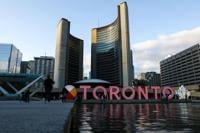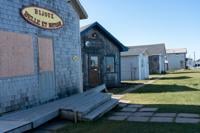A recent�� said the U.S. Consumer Product Safety Commission plans to take action against natural gas stoves — including a possible ban — amid rising concern about harmful air pollutants emitted by the appliances. A noted one of the studies mentioned in the article was co-authored by an organization that has worked with the World Economic Forum (WEF), a global think tank. The site seized on this to argue the WEF was part of an effort to outlaw gas stoves. However, there is no evidence of the WEF’s involvement in the study and there are no current nationwide plans to ban gas stoves in the United States. ��
, including��who appear to be��, have amplified the notion the WEF was behind – or at least part of – a push to ban gas stoves.��
Rating: False
The Jan. 9 Bloomberg article said the U.S. product safety commission plans to open public comment on hazards posed by gas stoves later this winter.����
The story said that natural gas stoves, used in about 40 per cent of homes in the United States, “emit air pollutants such as nitrogen dioxide, carbon monoxide and fine particulate matter at levels the (U.S. Environmental Protection Agency) and World Health Organization have said are unsafe and linked to respiratory illness, cardiovascular problems, cancer, and other health conditions.” The story cited 2022 studies from the and the .����
The article also cited new published in December in the International Journal of Environmental Research and Public Health, which said��that 12.7 per cent of current childhood asthma cases in the United States can be attributed to gas stove use.��
Reaction to the Bloomberg story
Two days after the Bloomberg piece appeared, conservative website RedState published an item claiming the "company" behind the asthma study, Carbon-Free Buildings, is a partner of the World Economic Forum. In its , the WEF says it is “committed to supporting global efforts in the private and public sectors to limit global temperature rise and stave off disaster.”��
The forum, which held its annual meeting in Davos, Switzerland, this week, has become the focus of numerous conspiracy theories alleging global elites are plotting to impose their agenda on the planet. Other websites critical of the WEF picked up on the RedState article, with one, , pointing to on the forum's site about gas stoves. The WEF article summarized that found gas stoves emit methane even when they are not in use, making them a bigger contributor to climate change than previously understood.��
About the asthma study
The ��(RMI) describes itself as an “independent, non-partisan, non-profit organization of experts across disciplines working to accelerate the clean energy transition.”��, which advocates for the transition to all-electric buildings in the United States, is one of its global programs. The institute is allied with the WEF and other organizations in the , aimed at decarbonizing heavy industry and transport.��
RMI researchers from the buildings program worked on the ��with health sciences colleagues from Australia and the United States. All authors claimed to have no conflict of interest. The study is part of a considerable body of research into the effects of gas stoves on air quality and human health that stretches back many years. There is no evidence the World Economic Forum was involved in the asthma study.��
The product safety commission clarifies remarks
A couple of days after the Bloomberg article appeared, the U.S. Consumer Product Safety Commission clarified its intent.��
On Jan. 11, commission chair Alexander Hoehn-Saric said ��the agency is looking for ways to reduce related indoor air quality hazards. "But to be clear, I am not looking to ban gas stoves and the CPSC has no proceeding to do so."��
The commission is researching gas emissions from gas stoves and exploring new ways to address health risks, as well as helping strengthen voluntary safety standards, Hoehn-Saric added.��
��ɫֱ�� recommendations
More than three decades ago, Health Canada identified nitrogen dioxide as a contaminant that “could have adverse health effects at concentrations potentially encountered in indoor air.” A issued in 2015 said potential indoor sources of NO2 include gas, wood or kerosene appliances such as furnaces, space heaters, stoves��and water heaters. The document goes on to say, “emissions from these appliances are minimal when the appliance is well vented,” and advises that residents use a range hood at a high fan setting while cooking. ��
Sources
()��
()��
Tweets repeating the claim can be found (), () and�� ()��
, April 2022 report from the Institute for Policy Integrity ()��
()��
()��
()��
()��
��()��
()��
()��
()��
()��
()��
About ��ɫֱ�� Press fact checks
You can find out more about The ��ɫֱ�� Press��here. To reach our fact-checking team with any tips, corrections or comments, please email us at��cpfactcheck@thecanadianpress.com.��
��






































